The low FODMAP vegan diet, explained in easy words, including your vegan low FODMAP grocery shopping list.
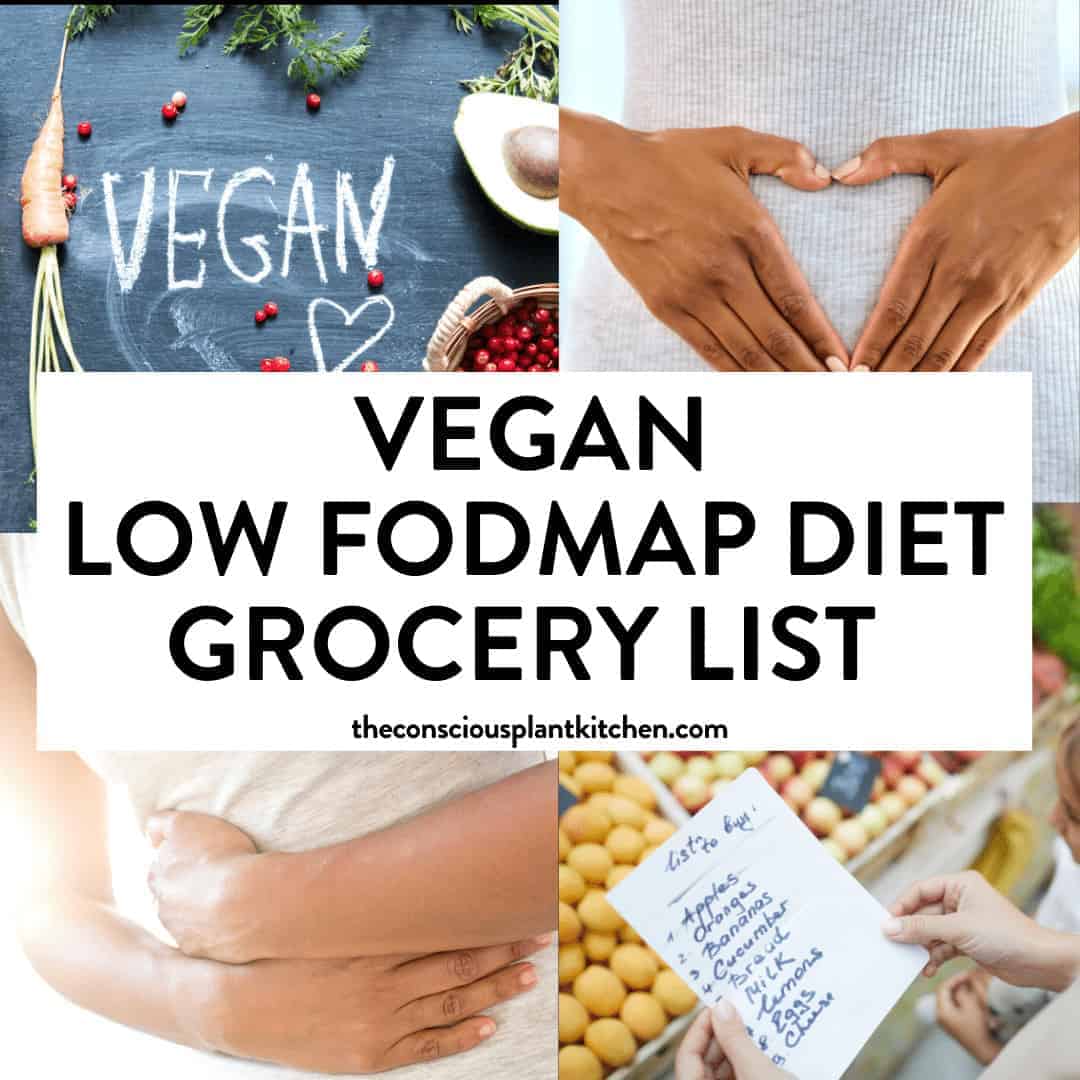
What you eat affects your bowel movement and digestion.
Studies from Monash University have shown that a low FODMAP vegan diet can help people with IBS ease digestive symptoms like gas, bloating, stomach pain, diarrhea, and constipation.
What does FODMAP stand for?
Fodmap means Fermentable Oligosaccharides, Disaccharides, Monosaccharides, and Polyols. They are short-chain carbohydrates that the small intestine can’t properly absorb.
Some people experience gut symptoms, also known as Irritable Bowel Syndrome (IBS), like cramping, winds, constipation, or diarrhea after eating them.
Instead of being absorbed, they stay in your intestines, where your gut bacteria use them as fuel, producing hydrogen gas that causes gut discomfort – unlike regular bacteria that produce methane.
Not everyone feels sensitivity to FODMAPs, and some people only get sensitivities to a category of FODMAP.
What are the common FODMAPs?
The most common FODMAP are:
- Fructose – the sugar naturally present in fruits and some vegetables. But also the sugar present in white sugar and most added sugar.
- Lactose – naturally occurring in dairy and milk products, so usually not a concern for vegans.
- Fructans – these carbs are founds in grains, mainly in non-gluten-free grains like wheat, rye, barley, spelt.
- Galactans – these carbs are found in large amounts in beans and legumes. On a vegan diet, we eat more galactans than on a Western diet because plant proteins often come from beans like chickpea, lentils, black beans.
- Polyols – these are the sugar-free sweeteners often found under the names erythritol, xylitol, sorbitol, maltitol, or mannitol. They can also be present in some fruits and vegetables.
Can a vegan diet trigger IBS symptoms?
Yes, starting a vegan diet can suddenly trigger IBS symptoms, and therefore you will benefit from a low FODMAP vegan diet.
The 3 main reasons why a plant-based diet can lead to vegan bowel issues are often linked to high consumption of:
- Legumes and beans – they are high in galactans and build up gas in your intestine. Since most plant-based proteins come from these two, it often triggers IBS symptoms on a vegan diet.
- Non-gluten-free grains – too much wheat bread, pasta, bulgur, faro feed your gut bacteria to produce gas.
- Fructose – over-consumption of fruits also leads to irritable bowel syndrome.
How to identify which food trigger IBS symptoms
That’s a tricky part, and that’s why a low FODMAP diet is helpful.
To understand which food causes your gut symptoms, you need to test each food individually on your body.
Remember that we are not all the same when it comes to IBS symptoms. Everyone has a different level of tolerance to each high FODMAP food.
Sometimes it can be the entire galactans food category that troubles you, which means you have to eliminate all beans and legumes from your diet.
Or, it can just be one or two foods from that category. For example, you may just be sensitive to black beans and not chickpeas.
Also, FODMAP serving size matters. Sometimes you will be able to tolerate a small amount of high FODMAP foods. For example, high FODMAPs almonds can often be low FODMAP if you eat less than 2 tablespoons.
What is a low fodmap diet?
A low FODMAP diet is an elimination diet. It means that during 3-6 weeks, you replace all the high FODMAP foods for low FODMAP options. During that time, your body shouldn’t experience any gut distress and repair.
After that time, you reintroduce one high FODMAP ingredient at a time, in small serving sizes for a duration of 3 days, increasing the amount daily. If your body triggers any uncomfortable gut symptoms, it means you have an intolerance to this food, and it shouldn’t be part of your diet.
Everyone is different and will end up with a list of high FODMAP they can tolerate with different levels of tolerance.
In the future, the FODMAP diet allows you to identify the food you tolerate and the one to avoid.
Vegan foods high in FODMAPS
Here is a list of the most common vegan foods that are high in FODMAPS. These are the foods with the highest risk of triggering IBS symptoms.
They are also the ones you should avoid in the first phase of the low FODMAPs diet and reintroduce one by one to identify your trigger.
- Fruits: Apples, Dried apricot, dried mango, dried goji berries, dried figs, Mango, Nashi, Pear, Persimmon, Canned fruit in natural juice, large servings of fruit, Fruit juice, Watermelon, Apricot, Blackberry, Boysenberries, Ripe bananas, Currants, Dates, Cherry, Lychee, Nectarine, Peach, Plum, Prune.
- Vegetables: Avocado, Peas, Snow Peas, Sugar snap, Taro, Asparagus Beetroot, Broccoli, Brussels sprouts, Cauliflower, Savoy Cabbage, >Eggplant, Fennel, Garlic, Leek, Okra, Onion (all) Shallots, Green bell pepper, Mushrooms, Sweet corn.
- Sweeteners: Fructose, High fructose corn syrup, Corn syrup, Concentrated fructose, Sorbitol (420), Mannitol (421), Isomalt (953), Maltitol (965), Xylitol (967).
- Nuts and seeds: Almonds, Cashews, Pistachios.
- Proteins: Black beans, Cannellini beans, Refried beans, Broad beans, Lima beans Fava beans, Red kidney beans, Split peas.
- Condiments: Hummus, Garlic powder, Onion powder, White sauerkraut, Chicory, Dandelion, Inulin.
- Grains and flours: Almond flour, Rye flour, Amaranth flour, Lupin flour, Spelt, Einkorn flour, Wheat flour, Coconut flour, Wheat in large amount (e.g., bread, crackers, cookies, couscous, pasta).
- Drinks: Coconut water.
- Plant-dairy: Coconut milk with inulin, Oat milk, Soy milk from soybeans, Kombucha tea, Chamomile tea, Strong black tea with soy milk from soybeans, strong chai tea, strong dandelion tea, strong fennel tea, strong green tea.
Low FODMAP vegan foods
Below is the list of low FODMAP vegan foods. That’s the food that shouldn’t trigger gut discomfort and the one you should eat on your fodmap elimination phase to repair your gut.
Foods you can eat on a vegan low-FODMAP DIET are:
- Fruits: Banana, Blueberry, Boysenberry, Cantaloupe, Cranberry, Durian, Dried bananas, Grape, Grapefruit, Honeydew melon, Kiwi, Lemon
Lime, Mandarin, Orange, Passionfruit, Pawpaw, Raspberry, Rhubarb, Rockmelon, Star anise, Strawberry, Tangelo - Vegetables: Alfalfa, Artichoke, Bamboo shoots, Beat shoots, Bok choy, Carrot, Celery, Choko, Choy sum, Endive, Ginger, Green beans, Lettuces, Olives, Parsnip, Potato, Pumpkin, Red bell pepper, Silverbeet, Spinach, Summer squash (yellow), Swede, Sweet potato, Taro, Tomato, Turnip, Yam, Zucchini
- Sweeteners: Coconut sugar, Sucrose, Glucose, Artificial sweeteners – not ending in ‘ol’, Maple syrup, Brown rice syrup, Stevia
- Nuts and seeds: Brazil nuts, Pumpkin Seeds, Hemp Hearts, Sunflower Seeds, Macadamia, Peanuts, Pecans, Pine nuts, Walnuts, Linseeds/flaxseed
- Proteins: Firm tofu not silken, Hemp seeds, Edamame, Peanut protein powder Pea protein powder (in small amount), Sprouted mung beans, Canned lentils
- Condiments: Capers, Soy sauce, Mustard, Spices without onion or garlic powder, Salt, Pepper, Dry herbs: basil, mint, paprika, chili powder, Mayonnaise, Peanut butter. Miso paste, Wasabi, Marmite/vegemite, tabasco, Worcestershire, Nutritional Yeast, Vanilla, cinnamon, Dark chocolate, all oils
- Grains and flours: Buckwheat, Cornflour, Rice, Oats, Teff flour, Maize flour, Polenta, Arrowroot, Millet, Psyllium, Quinoa, Sorghum, Tapioca
- Plant dairy: Almond milk, Canned coconut cream or milk, Hemp milk, Macadamia milk, Rice milk, Quinoa milk, Soy milk not made from soybeans, dairy-free yogurt – check additives like apple juice or -ol sweeteners, Margarine
- Drinks: Cranberry juice, black espresso, black tea with low FODMAP plant-based milk, strong peppermint tea, drinking chocolate 60-70%, Strong green tea, strong white tea, weak black tea with low FODMAP milk
Of course, it’s difficult to only eat low FODMAP vegan food in the long term, but focusing on this list will significantly decrease your gut discomfort.
Vegan foods medium in FODMAPS
The list of vegan food below contains a medium amount of FODMAP and can sometimes be tolerated by some people suffering from IBS.
- Fruits: Coconut, Dried cranberries, Longon, Rambutan.
- Vegetables: Butternut pumpkin, Canned artichokes hearts, Canned pumpkin, Celery, Semi-dried Tomatoes, Red cabbage fermented.
- Sweeteners: erythritol, allulose.
- Nuts and seeds: shredded coconut, hazelnuts.
- Proteins: Canned lentils, canned chickpeas, boiled green lentils, boiled red lentils, green lentils.
- Condiments: balsamic vinegar, coconut jam, pesto sauce, quince paste, caraway seeds, hummus homemade without garlic and using canned chickpeas, sundried tomatoes, wakame flakes.
- Grains and flours: wheat bread, gluten-free multigrain bread, gluten-free rice chia bread, oat bread, sourdough bread.
- Plant dairy: long-shelf coconut milk.
- Drinks: Weak herbal tea – except peppermint tea (low-FODMAP), weak chai tea, strong black tea (no plant milk).
Low FODMAP vegan recipes
Most vegan recipes contain high FODMAP ingredients like garlic, onion, or legumes. A great way to eat low FODMAP vegan recipes is to adapt them by:
- Removing garlic and onion.
- Swapping beans with canned lentils or firm tofu, tempeh.
Low FODMAP Vegan Breakfast
For a low FODMAP vegan breakfast, focus on oats, gluten-free cereals like puffed rice, cornflakes. If a recipe calls for bananas, don’t use ripe bananas, but swap for yellow bananas.
For protein powder, focus on a peanut protein powder or a small amount of pea protein powder.
Low FODMAP Vegan Snacks
The best low FODMAP vegan snacks should focus on low FODMAPs grains and fruits. For the recipe below using bananas, swap ripe bananas for green, yellow bananas. Avoid dried dates often used in energy balls.
Low FODMAP vegan Drinks
Low FODMAP Vegan Meal
In the vegan meal recipes below, remove garlic and onion and swap chickpea or black beans with canned lentils or crumbled tempeh.
Conclusion
In conclusion, high-FODMAPs foods are not unhealthy food! They are simply short-chain of carbs that or non digested by your intestines.
As a result, they feed your gut bacteria to produce gas resulting in bloating, diarrhea, constipation.
Keep in mind that high FODMAPs food is high in prebiotic fiber, which also supports your gut microbiome.
So the key is to identify the high FODMAP food that your own body can’t tolerate well and focus on eating the ones that you handle the best.

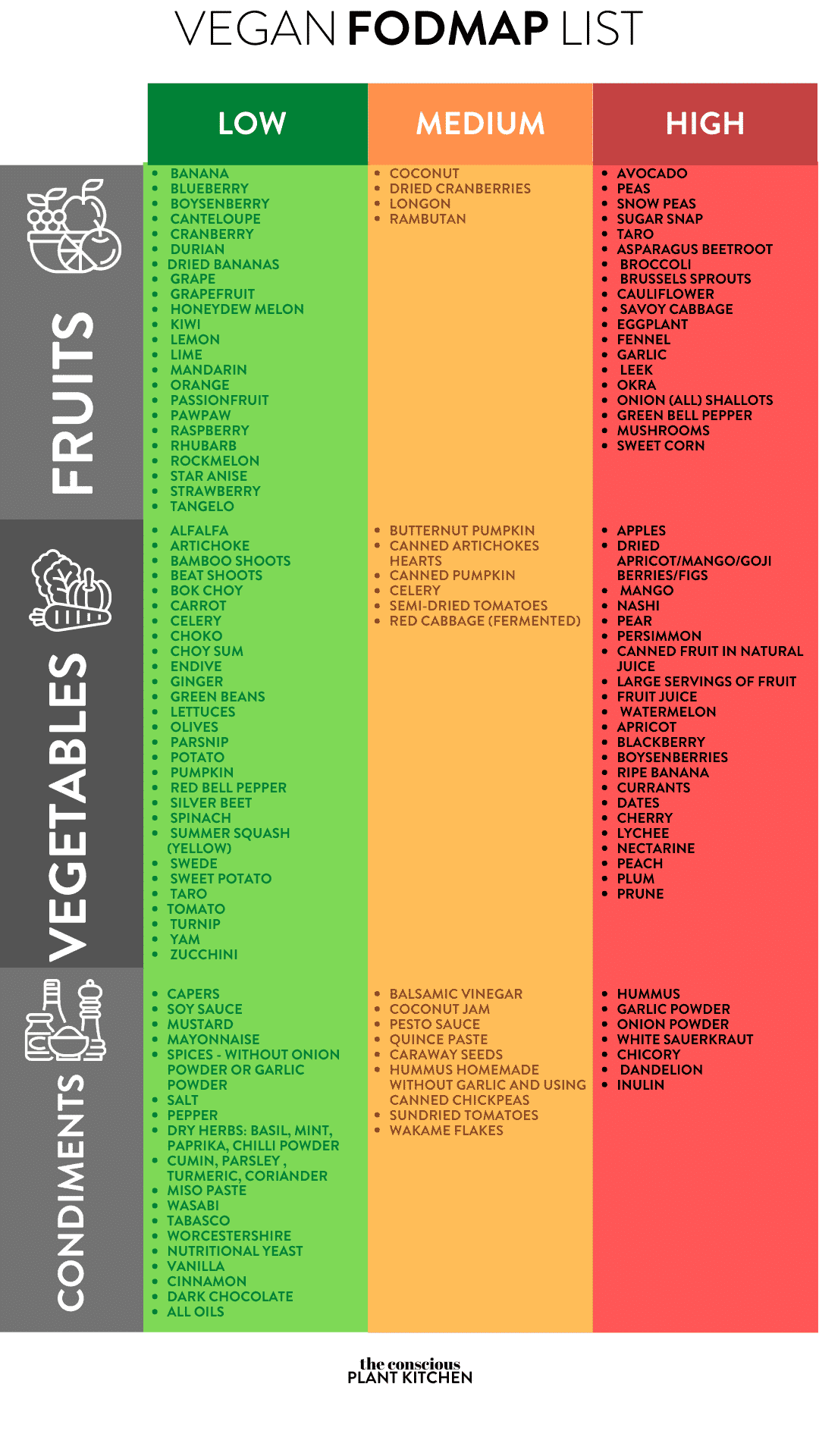
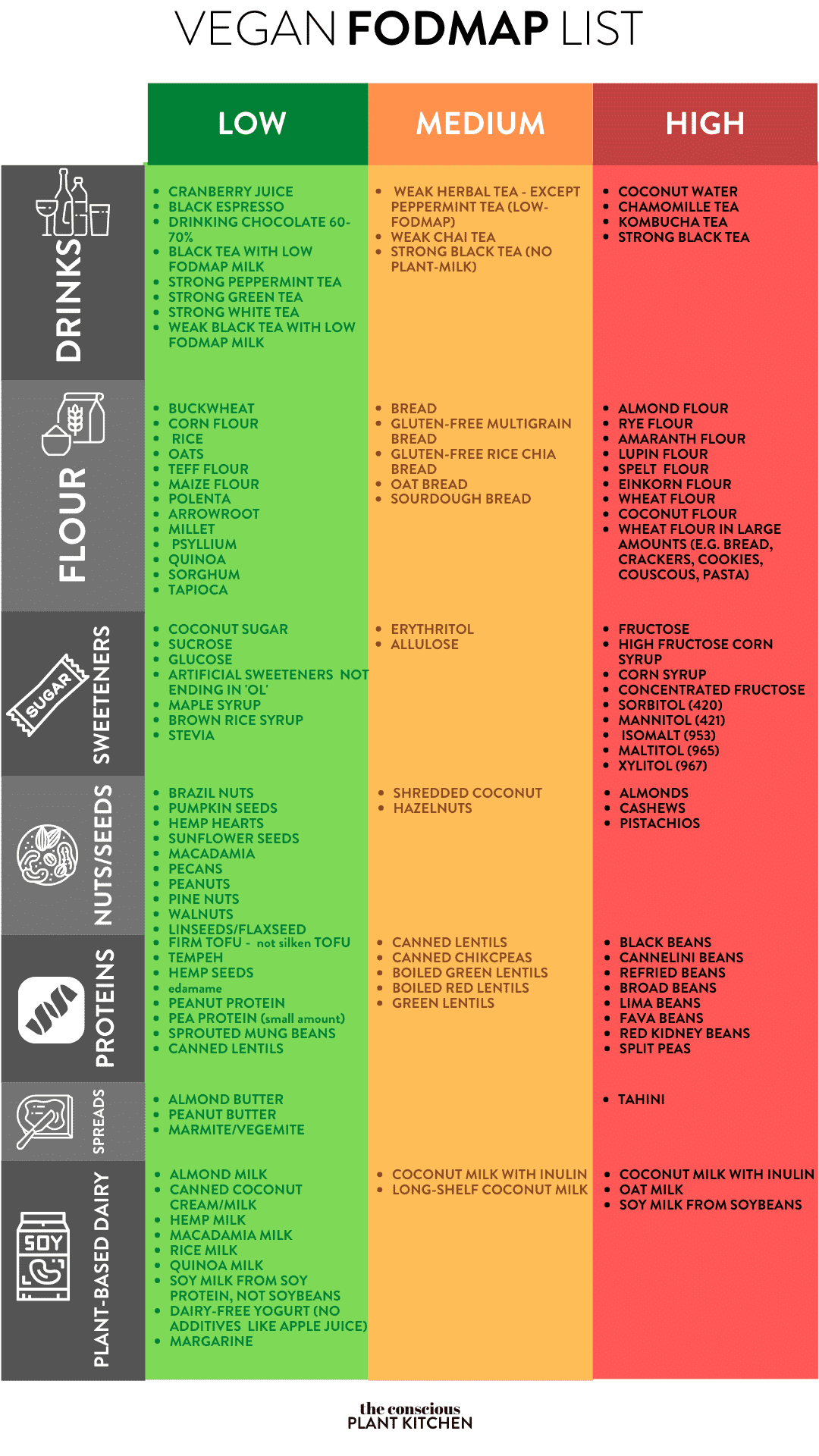
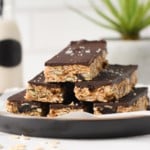
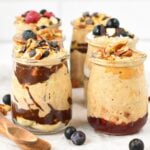
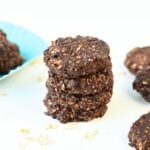
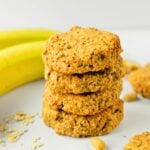



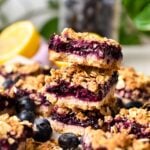
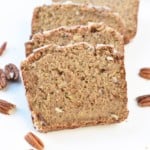
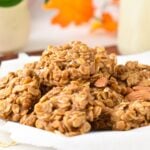
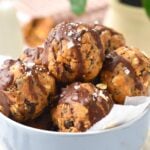
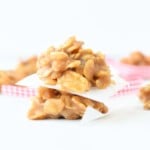

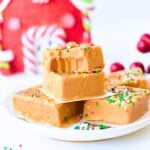


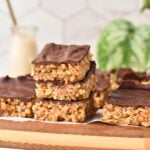




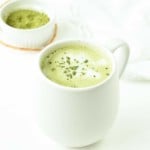


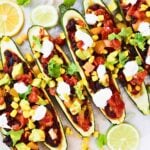
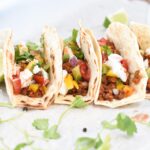

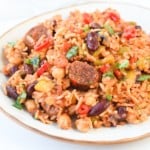

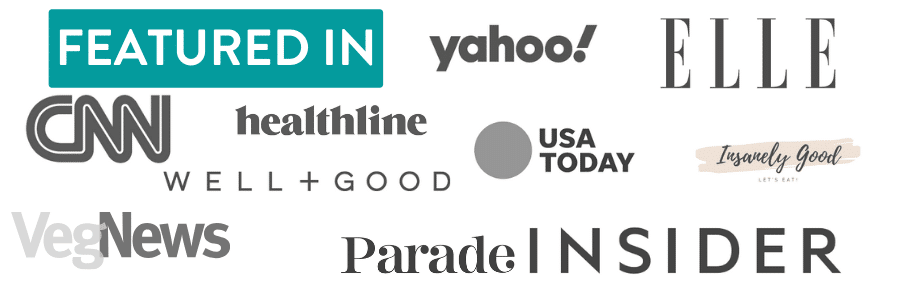
Is there a symbol or something on your recipes that show whether it is FODMAP friendly. I appreciate the recipes on your FODMAP but was wondering if many of the recipes found in your “All Recipes” section are FODMAP friendly.
Thank you so much for such a great website!
Cheri Hays
Unfortunately no, low FODMAP also depends on the quantity of the ingredient you consume so it’s difficult to tag a recipe as low FODMAP.
Thank you!
My partner has IBS (not diagnosed by doctors). He has lost over 20kg within 2 years (also because of stress) since being on mostly plantbased diet since we are together. He cannot finish his meals, and keep his weight. 1 year of tests at doctors and they havent found „anything”. All specialists do not see the bigger picture. Of course they were mostly just checking for cancer. But they as always has no idea about diet.
Thank you for adjusting this list for a vegan diet. It will be a challange but it gives me hope that we can sort it out even following a plantbased diet.
Thank you so much for this informative article! I have been looking for info on vegan low FODMAP foods and this is by far the most useful, most helpful information I have found.
Thank you for all of this information! Is there a printable version of the foods lists so I can keep that handy while choosing recipes/cooking in the kitchen?
If you click right on the image and save it to your laptop then you should be able to print it.
could you please help me find the vegan vegetable bowl with 18.7 grms of protein, thank u
The protein bowl recipe for you
Hi,
Can you please clarify what type of soy milk is okay? Thanks.
I’ve been vegan for 3 years, but my GI doctor is recommending Low FODMAP. It’s a bit overwhelming!
Feel you friend, I’ve been diagnosed with SIBO and for a vegan that’s a pain in the as*. But we’re gonna make it!
Only soy milk made from soy protein, not from soy beans
Wow, this document is chock-full of FODMAP info, and I greatly appreciated reading it. Will be bookmarking it for future reference. My bloated belly has been out of control and causing me immense suffering, and I’ve been vegan for almost nine years too, and was vegetarian for seventeen; so not a newbie. Thanks again for breaking it down and sharing recipes too.
Thanks !I am glad it will help you too. Take care